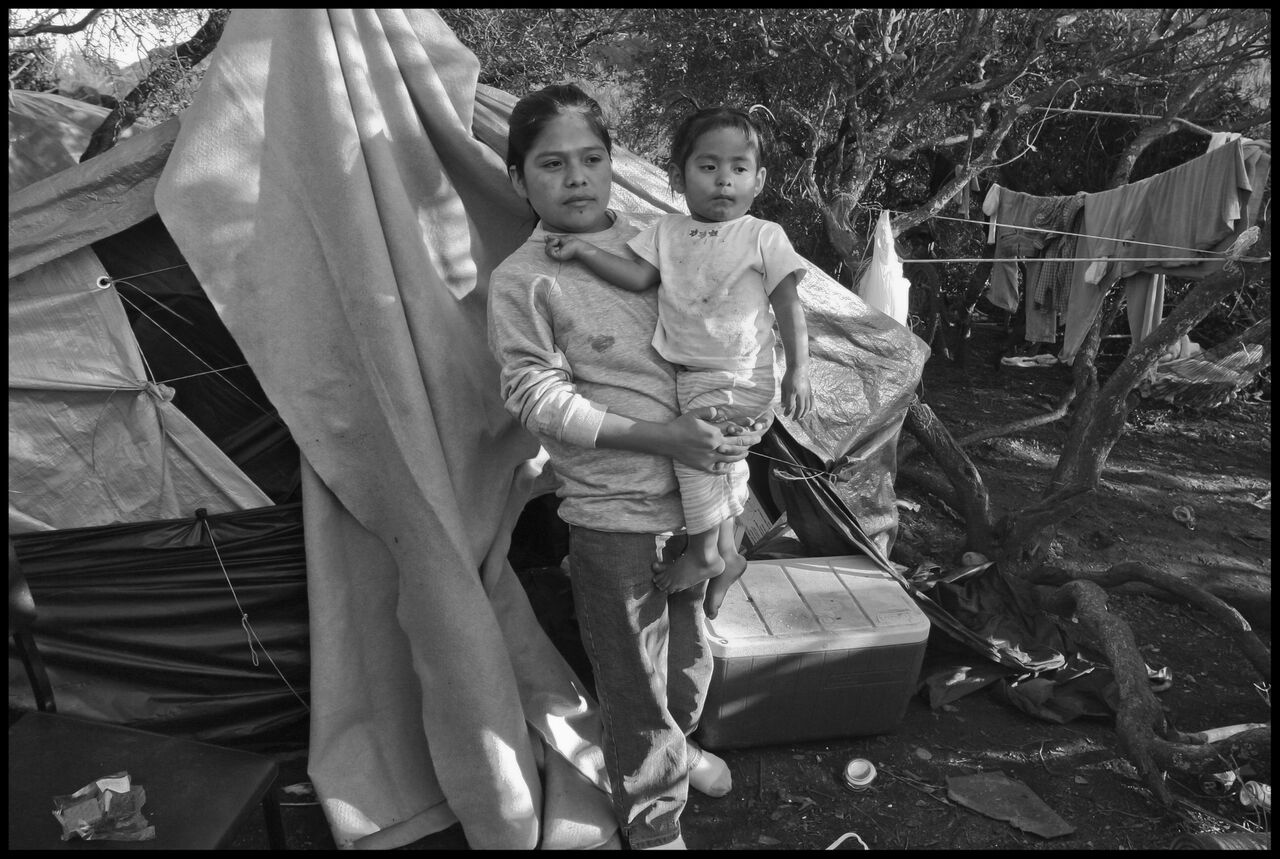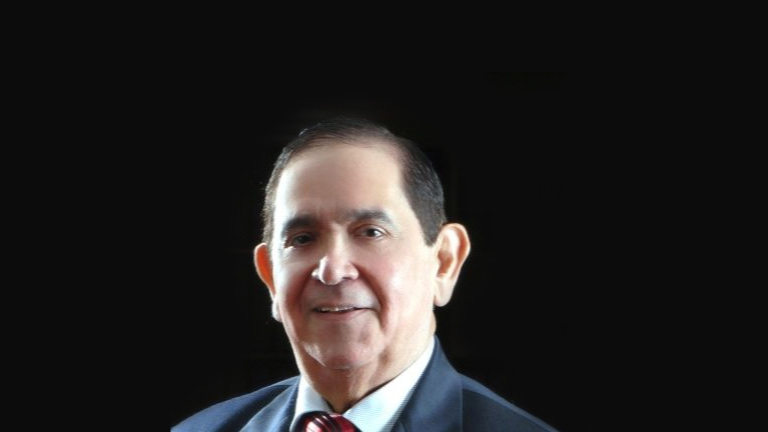[:en]“One of the stories and photographs I took are of Lorena Hernandez who is a young single mother working out in the fields picking blueberries,” says David Bacon. The photographer, journalist and activist will be presenting his exhibit In the Fields of the North at the University of Nebraska at Omaha (UNO) September 1-30th. Members of the community interested in Bacon’s work will have the opportunity to have a conversation with him during his September 18th presentation at UNO. The presentation will be hosted at UNO from 6-7:30 P.M. Attendees are asked to RSVP to Yuriko Doku at [email protected].
Bacon says he is excited to share his work with the Omaha community and there are a lot of stories that stick out. “The photograph of Lorena I took at work, the photographs show her hands and her working,” says Bacon, adding “when I am taking the photographs, I try to get really close to the person so you can really see what they are doing and look at their hands, their face, and also because it has a feeling of intimacy, I am trying to draw you closer to the person in the photographs so you can have some empathy and human feeling for the person that is in the picture.”
Bacon says he was particularly touched by her story and the current political climate makes her story very relevant. “She is a young woman that came to the United States from Oaxaca, Mexico. She is a single mom and she talks in her story about how she has to leave the house really really early in the morning. She works out in the fields all day, comes home late, completely exhausted. Has to do the laundry, get the food ready for the next day and she says her daughter is asleep when she leaves and asleep when she comes home. She worries that her daughter is not recognizing her as her mom anymore because her aunt is taking care of her and she is wondering what that is going to mean for her relationship with her own daughter,” says Bacon.
He says that this is a common situation for many farm workers. “Lorena shared she would like to go back to school but can’t,” says Bacon, adding “I think that is the story of so many young people who are working out in the fields, it is the economic reality.”
“We have gotten the news from the Trump administration that they are going to withdraw DACA. That is going to have a profound effect on people. The photographs that are being show at UNO, a lot of them are of young people. People who this decision is going to affect,” says Bacon. The photographer points out that withdrawing DACA means that people can’t work legally. “How does the government expect them to support themselves and put food on the table for their families?” asks Bacon.
Bacon also points out there now there is greater danger that people are going to be deported. “When you look at the photographs you see these people are doing very important work. If they didn’t work we wouldn’t eat,” he adds.
Bacon mentioned that he has known an Omaha community organizer for twenty years and he remembers his words as he works with these farm workers. “I’ve learned a lot from Sergio Sosa, director of Omaha’s the Heartland Workers Center,” says Bacon. “Sergio once told me that migrants were “citizens of the world.” He talked about Latinos in a way I’ve always remembered, and I put what he said into one of my books: ‘We are a new generation of immigrants, documented and undocumented — the point of a lance opening the road for the next generation, who will become legal residents and citizens.’” Bacon adds that he knows the people he works with are contributing to the United States and their work define cities like Omaha. “I think that’s a good thing to think about after hearing about this terrible announcement that the administration will try to repeal DACA,” says Bacon.
Bacon, who was a union organizer for about twenty years says that the experience really educated him on farm labor, the use of immigration and also taught him a lot about Latino culture, which are the themes of the show at UNO.
“The photographs document very important work, the work of putting food on the table, something we all benefit from,” says Bacon.
During the community conversation on September 18th, Bacon will talk about these themes and also talk more about why he takes the pictures that he does and share the realities of farm labor in the United States today. “I am also going to talk about what people are trying to do to change their situation,” says Bacon.
More information can be found at www.unomaha.edu/college-of-arts-and-sciences/ollas.[:es]“Una de las historias y fotografías que tomé son de Lorena Hernández, una joven madre soltera trabajando en los campos recogiendo arándanos,” dice David Bacon. El fotógrafo, periodista y activista presentará su exposición En los Campos del Norte en la Universidad de Nebraska en Omaha (UNO) del 1 al 30 de septiembre. Los miembros de la comunidad interesados en el trabajo de Bacon tendrán la oportunidad de tener una conversación con él durante su presentación el 18 de septiembre en UNO. La presentación se llevará a cabo en UNO de 6-7: 30 P.M. Se le pide a los asistentes que se pongan en contacto con Yuriko Doku en [email protected] para hacer una reservación.
Bacon dice que está emocionado de compartir su trabajo con la comunidad de Omaha y hay varias historias que sobresalen. “La fotografía de Lorena Ia tome en el trabajo, las fotografías muestran sus manos y su trabajo,” dice Bacon, agregando “cuando estoy tomando las fotografías, trato de acercarme realmente a la persona para que uno pueda ver lo que están haciendo y mirar sus manos, su rostro, y también porque tiene una sensación de intimidad, estoy tratando de acercar a la persona en las fotografías para que la audiencia pueda tener algo de empatía y sentimiento humano con la persona que está en la imagen.”
Bacon dice que la historia de Lorena lo emociono y el clima político actual hace que su historia sea muy relevante. “Es una joven que vino a los Estados Unidos desde Oaxaca, México. Ella es una madre soltera y habla en su historia acerca de cómo tiene que salir de la casa muy temprano en la mañana. Ella trabaja en el campo todo el día, llega tarde a casa, completamente agotada. Tiene que lavar la ropa, preparar la comida para el día siguiente y dice que su hija duerme cuando se va y duerme cuando llega a casa. Ella se preocupa de que su hija no la reconozca como su mamá más porque su tía está cuidando de ella y se está preguntando qué va a significar para su relación con su propia hija,” dice Bacon.
Él dice que esta es una situación común para muchos trabajadores agrícolas. “Lorena compartió que le gustaría volver a la escuela pero no puede,” dice Bacon, agregando “creo que esa es la historia de tantos jóvenes que trabajan en los campos, es la realidad económica.”
“Hemos recibido las noticias de la administración de Trump que van a retirar el programa DACA. Eso va a tener un efecto profundo en la gente. Las fotografías que se están mostrando en UNO, muchas de ellas son de gente joven. Las personas que esta decisión va a afectar,” dice Bacon. El fotógrafo señala que retirar el programa DACA significa que la gente no puede trabajar legalmente. “¿Cómo espera el gobierno que se sostengan a sí mismos y pongan comida en la mesa para sus familias?” pregunta Bacon.
Bacon también señala que ahora hay un mayor peligro de que la gente va a ser deportada. “Cuando miras las fotografías, ves que estas personas están haciendo un trabajo muy importante. Si no trabajan, no comeríamos,” añade Bacon.
Bacon mencionó que conoce a un organizador de la comunidad de Omaha unos veinte años y recuerda sus palabras mientras que el trabaja con estos trabajadores agrícolas. “He aprendido mucho de Sergio Sosa, director del Centro Laboral de Omaha,” dice Bacon. “Sergio me dijo una vez que los migrantes eran ‘ciudadanos del mundo’. Habló sobre los latinos de una manera que siempre he recordado, y puse lo que dijo en uno de mis libros: ‘Somos una nueva generación de inmigrantes, documentados e indocumentados – el punto de una lanza que abre el camino para la próxima generación que se convertirán en residentes legales y ciudadanos.” Bacon añade que sabe que las personas con las que trabaja contribuyen a los Estados Unidos y que su trabajo define ciudades como Omaha. “Creo que es una buena cosa en que pensar después de escuchar sobre este terrible anuncio de que la administración tratará de revocar DACA,” dice Bacon.
Bacon, que fue un organizador sindical durante unos veinte años, dice que la experiencia realmente lo educó sobre el trabajo agrícola, el uso de la inmigración y también le enseñó mucho sobre la cultura latina, que son los temas de la exhibición en UNO.
“Las fotografías documentan un trabajo muy importante, el trabajo de poner comida sobre la mesa, algo de lo que todos nos beneficiamos,” dice Bacon.
Durante la conversación con la comunidad el 18 de septiembre, Bacon hablará sobre estos temas y también hablará más acerca de por qué toma sus fotos y va a compartir las realidades de la labor agrícola en los Estados Unidos actualmente. “También voy a hablar de lo que la gente está tratando de hacer para cambiar su situación”, dice Bacon.
Más información se puede encontrar en www.unomaha.edu/college-of-arts-and-sciences/ollas.[:]




